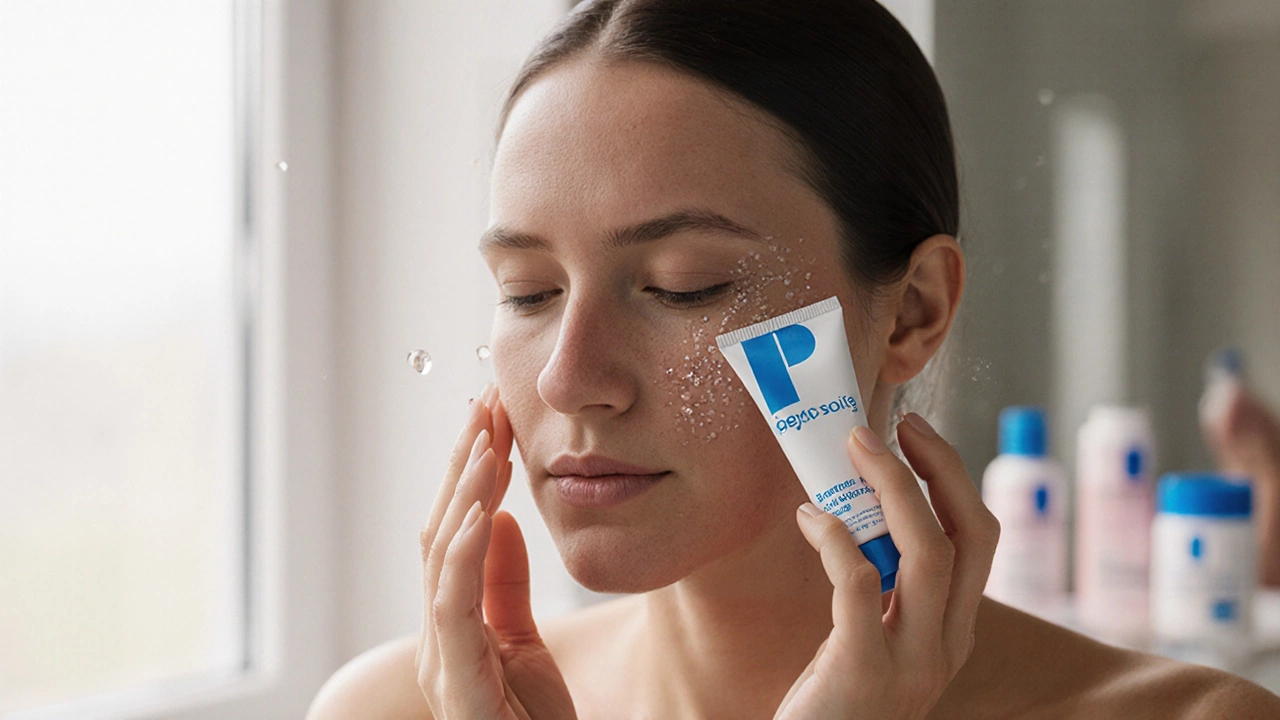Sensitive Skin Basics: What You Need to Know
If your face or body burns, itches, or turns red after a simple moisturizer, you probably have sensitive skin. It’s not a disease, just a skin type that reacts easily to harsh ingredients, fragrances, or sudden temperature changes. The good news? You can calm it down with a few smart steps and the right products.
Spot the Common Triggers
First, figure out what’s bothering your skin. Pay attention to when redness appears – after shaving, using a new cleanser, or stepping outside on a windy day. Common culprits include alcohol, strong acids, scented lotions, and even hard water. Write down any product that causes a flare‑up; over time you’ll see patterns and can avoid those ingredients.
Another hidden trigger is over‑exfoliation. Even “gentle” scrubs can wear down the skin barrier if you use them too often. Stick to once or twice a week, and choose a product with fine, round beads or a mild chemical exfoliant like polyhydroxy acid (PHA) instead of harsh glycolic acid.
Build a Simple, Soothing Routine
Now that you know what to dodge, let’s set up a routine that protects, not irritates. Start with a clean, lukewarm rinse – hot water strips natural oils, making red skin worse. Use a fragrance‑free, sulfate‑free cleanser that lists water, glycerin, and a gentle surfactant first on the ingredients list. Pat dry with a soft towel; rubbing can create micro‑tears.
Follow with a calming toner if you like, but keep it alcohol‑free. Look for ingredients like rose water, aloe vera, or oat extract – they add moisture without stinging. Next, apply a lightweight moisturizer that contains ceramides, hyaluronic acid, and niacinamide. These ingredients rebuild the skin barrier, lock in hydration, and reduce redness over time.
Don’t forget sunscreen. Even sensitive skin needs protection from UV rays, which can trigger inflammation. Choose a mineral sunscreen with zinc oxide or titanium dioxide; these sit on top of the skin and are less likely to cause a reaction than chemical filters.
If you experience occasional flare‑ups, a thin layer of a soothing cream with 1% hydrocortisone can calm the redness, but only use it for a few days. For long‑term relief, consider a serum with calming ingredients like centella asiatica or chamomile extract.
Finally, give your skin a break from makeup on days when it feels especially reactive. If you must wear makeup, opt for non‑comedogenic, fragrance‑free formulas that label themselves as “for sensitive skin.”
Stick to these basics, listen to your skin, and you’ll notice less irritation and a more even tone. Sensitive skin doesn’t have to be a daily battle – a gentle approach goes a long way.
Why La Roche Posay Is Better Than CeraVe for Sensitive Skin
La Roche Posay outperforms CeraVe for sensitive, reactive skin due to its thermal spring water and anti-stinging Neurosensine. CeraVe is great for dry skin, but La Roche Posay calms redness and burning that other products trigger.
Healthiest Moisturizers for Skin: Dermatologist-Approved Picks and Tips
Get the truth about the healthiest moisturizer for skin, what ingredients matter most, and tips to keep your skin truly happy and hydrated.
Top Doctor-Recommended Sensitive Skincare Brands for Your Routine
Navigating the plethora of skincare products on the market can be challenging, especially for those with sensitive skin. Discover the top doctor-recommended brands that cater to gentler skin needs, ensuring you choose wisely for optimal skin health. This article dives into why these brands are favored, what ingredients are beneficial, and how you can incorporate them into your daily regimen.



 Hair Care
Hair Care